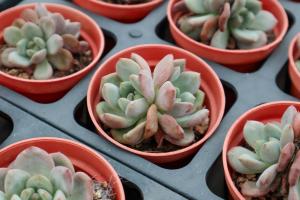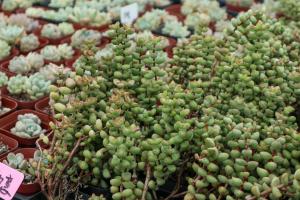What are Biodegradable Plant Pots in Wiki?
If you are someone who loves gardening and growing plants, then you must be aware of the importance of using safe and eco-friendly methods for planting. One way to ensure sustainable and safe planting is by using biodegradable plant pots. These pots are an incredible alternative to traditional plastic plant pots and help reduce the carbon footprint. In this article, we will explore more about biodegradable plant pots in wiki.
What are Biodegradable Plant Pots?
Biodegradable plant pots are containers made of organic and biodegradable materials such as rice husks, coconut coir, bamboo fibers, seaweed, and even recycled paper. The materials used to make these pots break down naturally in the soil without causing any harm to the environment or the plant. Unlike traditional plastic pots, biodegradable pots don't require you to uproot the plant before transplanting, as they decompose and dissolve in the soil over time.
Benefits of Using Biodegradable Plant Pots
There are several benefits of using biodegradable plant pots for gardening, including:
Environmental-Friendly: Biodegradable pots are plastic-free and do not harm the environment. They are made with organic and natural materials that decompose safely without releasing any toxic substances.
Cost-effective: While biodegradable plant pots may be slightly more expensive than traditional plastic pots, they ultimately save you money by eliminating the need for costly and time-consuming repotting.
Promotes Plant Growth: Biodegradable plant pots allow the plant's roots to penetrate the outer surface of the pot, promoting healthy root growth and preventing root circling.
Convenient: Biodegradable plant pots eliminate the need for transplanting and can be placed directly in the soil, saving you time and effort.
The Process of Biodegradation
Biodegradation is the process by which organic materials like biodegradable plant pots break down into simple molecules, including water, carbon dioxide, and biomass. The breakdown process takes place under certain conditions such as temperature, oxygen, and moisture levels. The microorganisms present in the soil are responsible for breaking down the organic material, resulting in the biodegradation of the plant pot over time.
Types of Biodegradable Plant Pots
There is a wide range of biodegradable plant pots available in the market, including:
Bamboo Fiber Pots: These pots are made from bamboo fibers and are an excellent alternative to plastic pots. They are durable and eco-friendly and can last for months before decomposing.
Coconut Coir Pots: Coconut coir pots are made from coconut husks and provide excellent drainage and aeration for plants. They can last for up to two years and can be directly planted into the soil.
Rice Husk Pots: Rice husk pots are made from the husks left over after harvesting of rice. Similar to the other biodegradable pots, they last for months and decompose naturally in the soil.
Recycled Paper Pots: These pots are made from recycled paper and cardboard and are an eco-friendly choice for planting seeds. They can be planted directly into the soil, and the paper material decomposes over time.
Conclusion
In conclusion, biodegradable plant pots are an excellent alternative to traditional plastic pots that can contribute to environmental pollution. They are eco-friendly, cost-effective, convenient, and promote plant growth. With various options available, you can choose the appropriate pot for different plants and gardening needs. So, switch to biodegradable plant pots today and make a conscious effort towards a greener and healthier environment.

 how many times do yo...
how many times do yo... how many planted tre...
how many planted tre... how many pine trees ...
how many pine trees ... how many pecan trees...
how many pecan trees... how many plants comp...
how many plants comp... how many plants can ...
how many plants can ... how many plants and ...
how many plants and ... how many pepper plan...
how many pepper plan...































